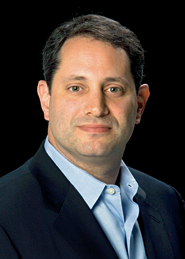With the recent increase in hedge fund inflows, the prime brokerage business is changing yet again. Douglas Nelson, chief executive officer of prime broker NorthPoint Trading Partners, recently spoke to Traders Magazine about how the industry has been evolving in the past few years.
Total hedge fund assets are now at about $2.6 trillion, according to HedgeFund.net. U.S. hedge funds saw inflows equivalent to 2.81 percent of their assets during the first quarter of 2011, the industry tracker reported.

Nelson said there has been greater interest in hedge funds from large pension plans and other traditionally conservative institutions that were previously reluctant to invest in them. Though Nelson said he is always concerned about regulation, he feels increased government scrutiny of hedge funds has in this case been helpful to the industry.
“Now that people are getting comfortable, there’s more and more money flowing into the space,” Nelson said. “When you start getting some regulation and a little bit more oversight, you get a lot more pools of capital.”
In the mid-1990s, there were only a few hundred hedge funds, but thousands of hedge funds started up over the last decade, according to Nelson. Consequently, the best prime brokers began to move upstream, creating a void in the marketplace for small to mid-sized funds that were unable to get access to some of the same services.
“That’s when we created NorthPoint to cater to that mid-size hedge fund market,” Nelson said. “Now what you’re seeing in the last couple of years is the need for much more infrastructure, even at the smaller funds, especially when it comes to technology.”
Service providers that didn’t have large technology budgets weren’t able to offer the infrastructure that funds needed, and many of those providers have shut down, Nelson said. NorthPoint, on the other hand, was acquired by ConvergEx at the end of 2009. Since then, it has been able to boost its technology and attract larger and more sophisticated clients, he said.
The basic services that clients look for in their prime brokers– custody, clearing and trade execution–remain the same. In the last few years, however, there has been more demand for risk systems and more advanced portfolio reporting systems, as well as for a more global reach in terms of execution capabilities and clearing, according to Nelson.
NorthPoint also deals with a number of family offices. Though family offices have historically had fewer technology demands, that seems to be changing.
“They’ve been maybe not at the cutting edge,” Nelson said. “But today I think you’re seeing a lot of family offices looking more like hedge funds in terms of their technology needs and their infrastructure needs.”
For family offices that invest capital themselves, there is a desire to be able to do everything hedge funds are doing, he said. For offices that rely on others to invest for them, there is still a demand for order management and risk management technologies, so they can better select and monitor their managers.
“There are a lot more tools that are available to them now than were available to them previously,” Nelson said.
As for the void that once existed for prime brokers to smaller hedge funds, it quickly disappeared as a number of firms rushed into the space. Many of them, however, did not have the proper resources and infrastructure in place and quickly came and went, according to Nelson.
The firms that succeeded and that have the budgets to build and maintain infrastructure will continue to thrive, he said. However, we are unlikely to see the flurry of activity from a few years ago when numerous prime brokers launched, he added.
“I do think there will continue to be that mini-prime market for the smallest hedge funds,” Nelson said, referring to funds with less than $20 million in assets. “Those funds still need a place to go, and there will be some players in that space, but it will continue to be a relatively small piece.”
Previously, large institutional investors wouldn’t consider investing with emerging managers at all, but the turmoil of 2008 has piqued their interest in smaller, more nimble hedge funds.
Still, investments in those funds remains quite small on a percentage basis, and NorthPoint remains focused on mid-tier funds, Nelson said.



